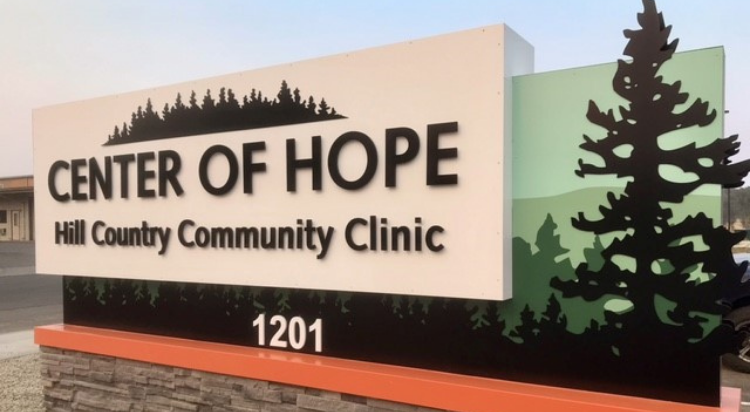Hill Country Community Clinic

In Shasta County, California, roughly a quarter of the land is covered by a national forest or Lassen Volcanic National Park. The county is about the size of Rhode Island but contains only six people per square mile. While many of the county’s residents value the privacy and natural beauty that the region offers, the area’s remoteness poses unique challenges for its healthcare providers.
“People drive 100 miles to get their teeth cleaned,” says Richard Hardie, Senior Financial Advisor for Hill Country Community Clinic. “People that drive 100 miles need to get as much work done as possible.”
Hill Country Community Clinic (HCCC) opened its doors in 1985 to serve the diverse healthcare needs of its rural northern California community. Instead of starting out in the county’s largest city, Redding, HCCC opened their main facility in Round Mountain – a town northeast of Redding with a population that fluctuates between 100 and 200 people. Recognizing that many rural Shasta County residents drive vast distances to take care of a single errand, HCCC designed this facility as a one-stop shop: along with medical, dental, and mental health services, it contains a public library with free internet, a youth center, a radio station, a walking trail, and a space for community events.
For rural Shasta County residents, having these services accessible in their own community was important. “It might be hard for someone to imagine Redding as a big city, but it is,” Hardie continues. “For people that live off the grid...going into Redding is intimidating. It’s not their place of comfort. Hill Country has always provided a safe haven.”
When MediCal expanded in California in 2014, Redding’s robust network of federally qualified health centers (FQHCs) struggled to serve the influx of new patients. Where before most rural Shasta County residents needed to drive to Redding to receive care, now people from Redding were trekking up the road to Round Mountain to access services they couldn’t find in the city. In response, HCCC expanded into Redding with the services that residents most frequently requested at Round Mountain: healthcare, dental care, counseling, substance abuse treatment, and urgent mental health response.
However, HCCC’s staff soon realized that many of the patients had root cause issues that a doctor’s visit wouldn’t be able to address – homelessness being foremost among them. “It’s really hard to stabilize people in their situations without a stable environment for them to live,” says Nick Cutler, former CFO of HCCC. “The expectation of [someone] improving their healthcare isn’t realistic without solving the root cause.”
The HCCC team asked themselves whether they could expand the model of comprehensive care that had worked so well in Round Mountain to the city of Redding. As it turns out, the answer was “yes.” In late 2019, HCCC broke ground on the Center of Hope: a 40,000 square foot facility that offers healthcare, mental health, addiction treatment, and dental services, along with supportive housing for youth transitioning out of foster care.
NFF supported this project with a loan through our AIM Healthy fund, which finances California providers of supportive housing, elder care, behavioral health, and other essential community services and by allocating an $11 million New Markets Tax Credits (NMTC) investment. The total loan was $10 million, which included a $5 million participation from Dignity Health.
In late July the Center of Hope opened its doors. It’s currently moving young people into its 16 units of supportive housing. It’s well on its way to serving its goal of 9,100 patients per year at its medical and dental facilities – the most patients served by any clinic in the state north of Sacramento. And it’s nowhere near done.
"After we finished financing for the Center of Hope...we also participated in a second round of funding called No Place Like Home,” Cutler continues. This funding will support nearly 100 additional units of housing – including 30 units specifically reserved for patients in HCCC’s complex care programs – and a charter school for youth in HCCC’s community.
These expansions represent a larger period of growth for HCCC – and of the impact it can have on the Shasta County residents it serves. “We’ve always been characterized as the innovative little organization,” says Lynn Dorroh, executive director of HCCC. “Now we’re the innovative medium-sized organization!”
“We'll often be the first ones to do something,” Lynn continues. “People notice that ‘they did it, and they pulled it off...maybe we should try it too!’”
To learn more about how the nonprofits NFF works with support community health and well-being, visit the Health page on our website.
